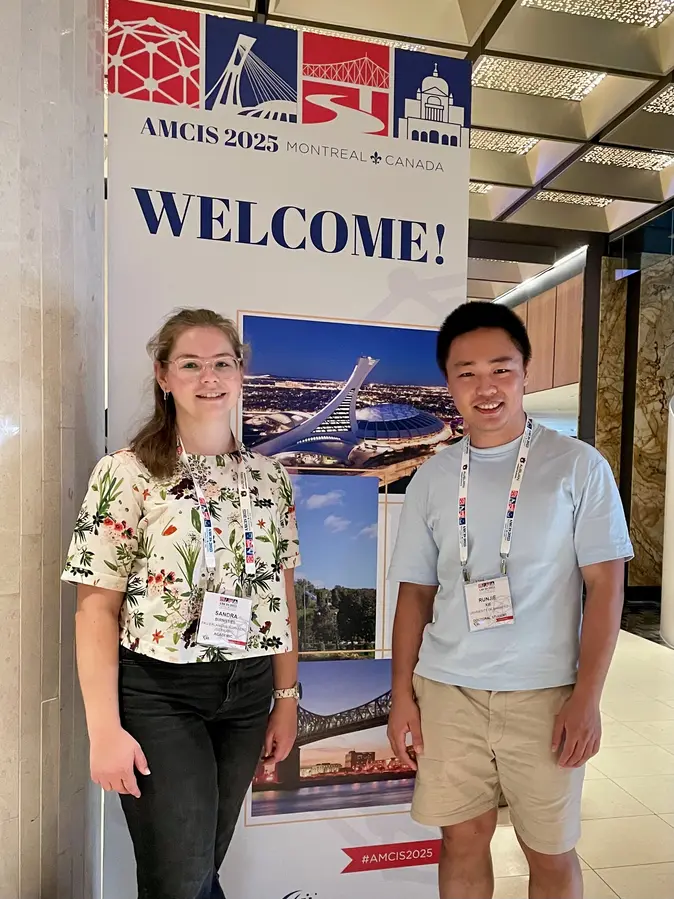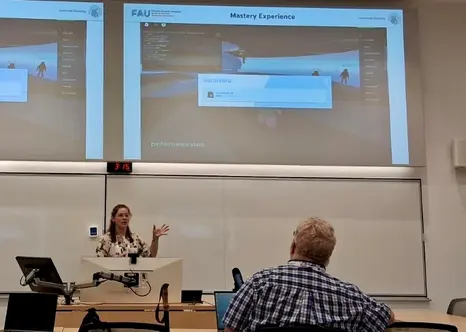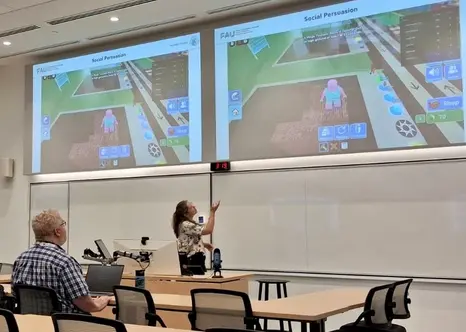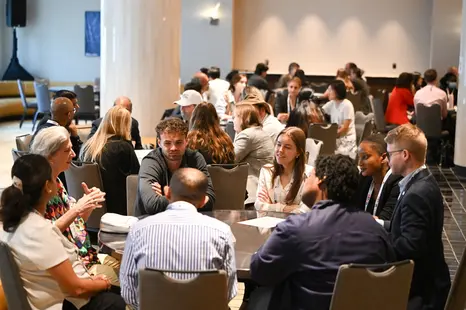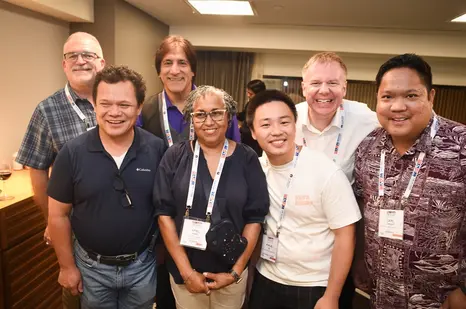Gamification Research Group at AMCIS 2025 in Montreal
The paper by Sandra Birnstiel, Runjie Xie, Johanna Eiting, and Benedikt Morschheuser addressed the question of how digital games on popular gaming platforms like Roblox can help prepare people for natural disasters. With this exciting topic, it successfully made it through the competitive review process, was included in the proceedings, and was finally presented on site.
But it wasn't just researching and publishing on this topic that we enjoyed; attending the conference itself was also a real highlight. In addition to exciting presentations and workshops such as the Paper-a-Thon and inspiring roundtables, Sandra and Runjie had the opportunity to network with other researchers and doctoral students from around the world. Montreal also provided the perfect setting: a hike with breathtaking views in the city park, delicious croissants, donuts – and of course poutine!
? bient?t – until (hopefully) the next AMCIS!
Further information on the published paper:
Crisis Preparedness Through Casual Gaming? - A Self-Efficacy Perspective
Authors: Sandra Birnstiel, Runjie Xie, Johanna Eiting und Benedikt Morschheuser
Abstract: Natural disasters pose a recurring global challenge, yet sustainable preparedness remains challenging. However, there is one context in which individuals often voluntarily engage with natural disasters: casual games. While serious games can effectively enhance self-efficacy – a key predictor of disaster preparedness – casual games are generally not designed for this purpose. To explore how casual games may support self-efficacy development, this study examines how natural disaster-themed casual games incorporate features associated with self-efficacy. Through a systematic search and analysis, we examine and map how game design features may afford relevant sources of self-efficacy. Our findings suggest that current implementations offer ample opportunities for mastery and vicarious experiences, while other sources of self-efficacy are less frequently addressed. Our research provides a first systematic overview of self-efficacy-related game design features in disaster-themed casual games and offers a foundation for future research on the potential of such games to support crisis preparedness.
Available in the AISeLibrary and on ResearchGate
